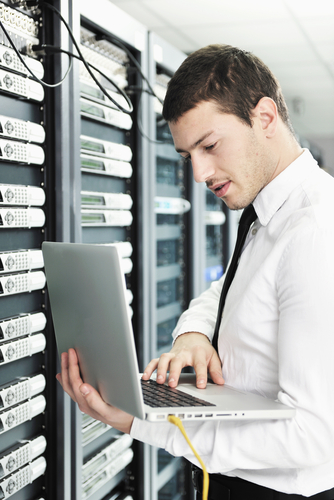Office Security - 10 Great Tips For a More Secure Workplace

Together with each technological progress that allows advanced, effective enterprise strategies, comes a security hazard that's equally innovative and both powerful.

Any appraisal of an office security system should begin with special security needs and the impacts they may have on your own business as a whole. You may require a facility secure for UL 20 50 certification or you can just need to safeguard your employees safety before and after business hours. But here are ten important techniques to better your office security system.
Effective Communication: First and foremost is communication information between and to employees. Many companies use email alerts to warn employees about hackers. Additionally, be certain that employees remain updated on procedures and possible visitors. By letting employees understand very well what and that to expect, they are better equipped to recognize suspicious activities or humans. In order to prevent complacency, attempt to use a single source of information which becomes part of a employee's regular. No matter the origin, it ought to be brief, practical, you need to comprise positive news in addition to precautionary info.
Key Control: Assign the responsibility of locking or unlocking any office for few individuals as possible. Create a procedure for those responsible for opening or shutting your workplace that includes checking washrooms, closets, or anywhere someone may be able to hide. Hard keys should be numbered and assigned to certain individuals. Employees delegated keys should occasionally be asked to produce their keys to verify a master registry.
Site-Wide Policies: Something as simple as a"clean-desk" policy, training all employees to secure and clear their own desks of invaluable equipment or advice before leaving for daily, radically reduces potential thieving. Mandating employees to possess display ID badges or access cards at all times increases the visibility of almost any unauthorized persons. Do not include job titles on almost any directory accessible to the general public due to the fact that much offenders will make use of a name and title to warrant their own presence in restricted locations. In the end, make certain you keep a"series of ownership ." Any deliveries must be given to a individual and not left in a hallway or on an unattended desk.
Small Investments: All computers, laptops especially, should be secured with cable or plate locks to avoid"walk-off." Docking stations are rather inexpensive ways to protect electronics devices when not in use. Pay close attention to high-risk targets like advanced equipment, postage meters, assess authors, and also company checkbooks. Utilize two secured doors surrounding a small reception or foyer. This sort of"air lock" system eliminates piggy backing, a method criminals utilize to obtain entrance by grabbing a secured door being an employee exits.
Anti virus: Though it is extremely unusual for a business not to possess anti virus software in this era, it is impossible to overstate its importance. Highend protection from viruses, malware, spyware, Trojans, and viruses is one of the shrewdest investments an office may create. This includes firewall protection for the primary platform, security for the wireless Web routers, and securing backups of all data, preferably off-site, for retrieval in the event of a cyberattack.
Lights, Camera, lay out: Be conscious of"dark stains" both inside and out of your workplace. Install event security London in parking lots and outdoor break areas for employee protection, remove blind are as in stairwells, and arrange offices and halls to get rid of any places where someone might hide himself or stolen items. Short of CCTV, discussed here, it might be worth it to install recording video security camera systems at key areas such as loading bays and access things such as afterhours entrances.
Reception: Among the complete solutions is to hire one or more full time receptionists. From a security procedure standpoint, this person allows for intimate inspection of identification and credentials and funnels security information through one point. When it is impractical to get each visitor greeted and checked-in with someone, consider a dedicated phone line in your lobby or at front door that goes only to a designated receiver. This approach, combined with a mutually channel, is quite a cost effective way for most offices.
Access Control System: One of the down sides with hard keys is responding when a person is stolen or lost. With an entry management system, organizations can issue access cards to employees while maintaining complete control over what each card will soon open. Furthermore, access control systems reduce danger by allowing only enough access to finish work. Thus, contractors, employees, or visitors can be confined by area or period of day. A couple of matters are critical together with access control systems. To begin with, allow"full access" to as few individuals as possible. Secondly, monitor the use of each card. By assessing card actions, you can find out who needs access into where and at which occasions, alerting specifying and routines access.
Closed Circuit Television (CCTV): For higher end security platform requirements, CCTV is perhaps one of the best methods of security. Through restricted air, each camera could be tracked through a single port. Depending upon the particulars of the system, footage might also be monitored by an employee or digitally recorded. Put cameras strategically to reach the maximum coverage for one unit. Like wise, corresponding or cameras signs which can be visible to employees and guests can succeed deterrents and create a safe environment. It is important to not forget, however, that as effective as CCTV is, also it should be used efficiently and in conjunction with other measures. By way of example, installing a machine at an entry with an"airlock" door system allows lengthy footage of a person(s) entering or exiting the premises.
Good Training: Most importantly, make certain each of your employees is trained to use security equipment and follow up procedures. Investment and preparation at the ideal security system will have little impact if individuals are unsure on precaution and intervention. This may be as simple as making sure employees maintain doors and windows secure or protect their personal belongings, but usually entails special training on identifying and responding to questionable things, persons, or events.
